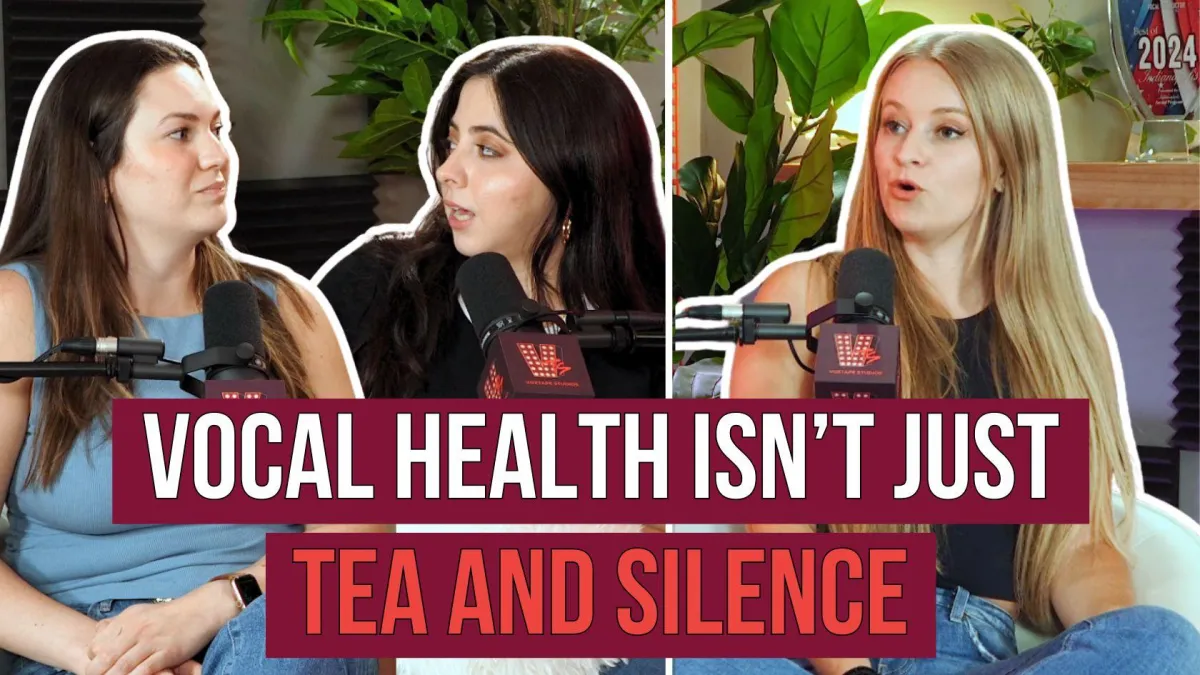
How To Keep Your Voice Healthy For The Long Run
Singers are often scared that they are hurting their voices and that they’ll develop a vocal injury. But your voice is a lot more resilient than you might think!
Vocal health is about managing inflammation, avoiding unnecessary tension, and giving your vocal cords the time and conditions they need to recover. Whether you're dealing with a raspy day or chronic fatigue, what you do matters more than what you avoid.
Should You Stop Drinking Coffee?
We hear people say to avoid coffee, alcohol, dairy, spicy foods, etc all the time… Does that mean that you have to cut out all your favorite foods and drinks if you want to be a singer? No, absolutely not.
Each one of those things effect each person differently! You just need to know how consuming those things effects you and your voice. For example if dairy products makes you feel like there’s a lot of mucus in your throat, you might want to avoid that on show days. But it’s also possible that you don’t feel anything at all after eating dairy!
So don’t just cut out these different foods and drinks - first check in with yourself and see how they affect you and then decide what to do about it.
Acid Reflux
Acid reflux can affect the voice in major ways - limited range, lots of mucus, vocal fold swelling or even a gap in your range. And a lot of times, people don’t even know that they have acid reflux since the vocal folds don’t have nerve endings!
If you think you might have acid reflux, consult with your doctor to see what you can do to reduce it.

How To Vocal Rest
Total silence is not always the best answer. Yes, your voice needs breaks -but intelligent vocal rest doesn’t just mean being completely silent. It means speaking less intensely, avoiding extreme pitch or volume, and reducing unnecessary talking (especially over noise).
SOVT exercises (like lip trills or straw phonation) can even help reduce inflammation and re-center your system. Think of them as vocal foam-rolling: subtle, therapeutic, and effective.
Feeling Over Sound
One of the most important things you can do for your vocal health is prioritizing what making sound feels like. So often we are focused on sounding good that we don’t really care what it takes to get us there. This is unfortunately not sustainable and could lead to vocal injuries - like it did for me. Many years ago I developed vocal nodules because I was overusing and misusing my voice.
There is no shame in having a vocal injury - it’s much more common than most people think. But obviously we want to try our best to avoid them. And to do that we want to make sure we don’t use the voice (for singing AND talking) too much and that we’re feeling good whenever we make sound.
I promise you, when singing feels good you’re going to sound a lot better than when you have to push or force your voice to get the notes out.
The Role of Warmups and Cooldowns
Your voice isn’t a light switch. Warming up and cooling down are key habits that help regulate vocal load.
Warmups gently bring in coordination and airflow.
Cooldowns help release effort and inflammation after singing or speaking.
Skipping either puts more strain on your cords over time.
“Even just 5 minutes of sliding or trilling after a show can make your next day 10x easier.”
Hydration Isn’t Just Water
Staying hydrated is crucial - but steam inhalation, ambient humidity, and airflow all play roles too.
When your throat feels dry, it’s not always about drinking more. It’s often about what kind of air you’re breathing, how much tension you're holding, and how consistently you're warming up/ cooling down.
What If My Voice Feels Off?
Some days your voice will feel tired. That’s normal. But here’s how to check in:
Did I overuse my voice today?
Was I speaking over noise or yelling?
Did I hydrate and rest properly?
Am I using tension to get through phrases?
Sometimes it’s as simple as checking your sleep, stress, and daily vocal load. Other times, it might mean modifying your warmup or speaking patterns for the day.
Key Takeaway: Don’t Overthink It
Don’t overthink your vocal health. It really just comes down to making sure you feel good and listening to your body.
Every smart warmup, cooldown, and rest day is helping you last longer, sing better, and feel freer.
🎧Check out the full episode on Vocal Health here:
Prefer Listening To The Podcast On Your Favorite Platform? Listen Below.


